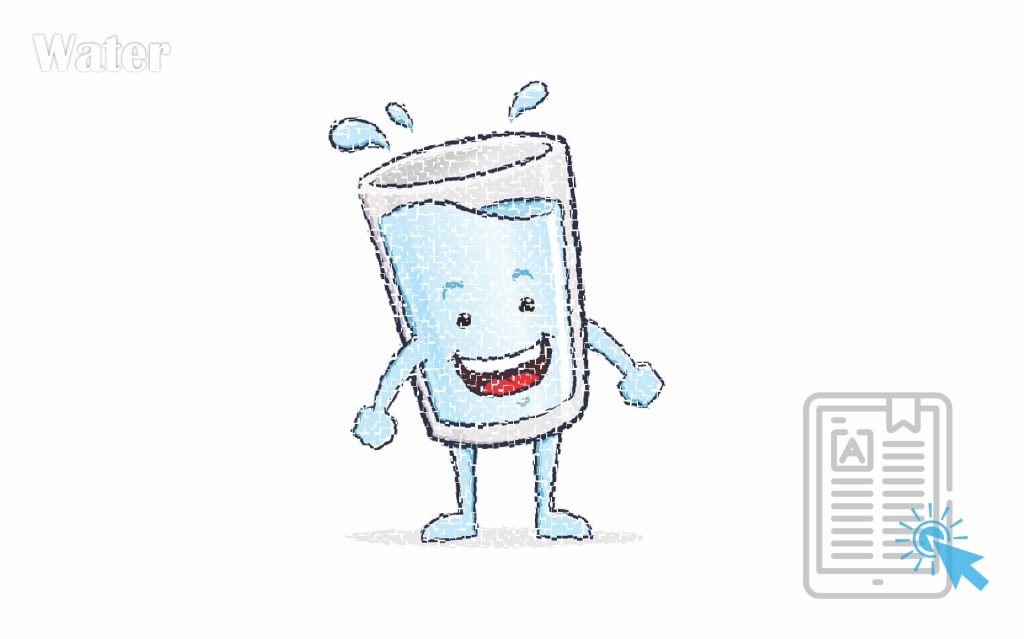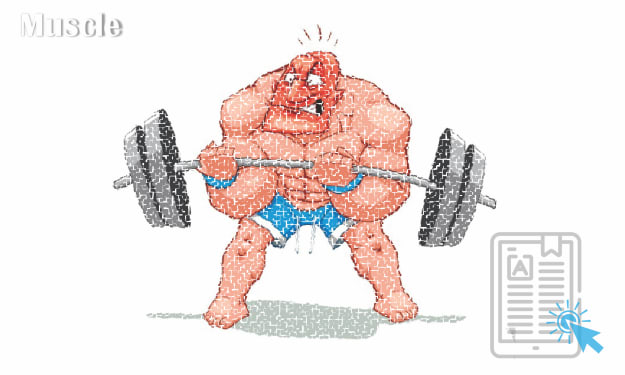Thirst Unleashed
The Riveting Journey Through the Body's Oasis and the Perils of Dehydration

Water exists virtually everywhere, from soil moisture and ice sheets to the cells of our bodies.
The average human is between 55 and 60 percent water, depending on factors such as location, body mass index, age, and gender.
Human babies are even wetter when they are born.
Because it is composed of 75% water, it swims like a fish.
However, their water composition drops to 65% by their first birthday.
So, what role does water play in our bodies?
How much do we need to drink to stay healthy?
Inside our bodies H20 cushions and lubricates joints, regulates body temperature, and nourishes the brain and spinal cord.
Water isn't just in our blood.
The adult brain and heart are almost three-quarters water.
This is approximately equivalent to the water content of a banana.
lungs are 83% apple-like.
And even though human bones may seem dry at first glance, they are still 31% water.
If we are essentially made of water and are surrounded by water, why do we need to drink so much?
Well, every day we lose 2 to 3 liters through sweat, urine, stool, and feces, and even through breathing.
These functions are essential for us to survive, but we must compensate for the loss of body fluids.
Maintaining balanced water levels is important to avoid dehydration and overhydration, both of which can have devastating effects on your overall health.
When low water levels are first detected, sensory receptors in the brain's hypothalamus signal the release of antidiuretic hormone.
Once it reaches the kidneys, it forms aquaporins, special channels that allow the blood to absorb and retain more water, producing concentrated, dark-colored urine.
Progressing dehydration can cause a significant drop in energy, changes in mood, watery skin, blood pressure, and signs of cognitive impairment.
A dehydrated brain works harder to do the same things as a normal brain, and may even temporarily shrink due to lack of water.
Fluid overload or hyponatremia is usually caused by excessive fluid intake over a short time.
Athletes are often victims of overhydration due to the complexity of regulating fluid volume under extreme physical conditions.
When the brain is dehydrated, the production of antidiuretic hormone increases, but when the brain takes in too much water, the release of the hormone into the bloodstream slows or even stops.
Sodium electrolytes in the body dilute, causing cells to swell.
In severe cases, the kidneys cannot keep up with the resulting amount of diluted urine.
Water intoxication can then occur, causing headaches, vomiting, and in rare cases, seizures and death.
But that's a pretty extreme situation.
For those of us lucky enough to have access to clean drinking water, managing our daily lives is easy.
For a long time, conventional wisdom believed that he should drink eight drinks a day.
This estimate has since been refined.
Currently, the consensus is that the amount of water we need to drink is highly dependent on our weight and environment.
The recommended daily intake varies between 2.
5 and 3.
7 liters of water for men and approximately 2 and 2.
7 liters for women.
If you are healthy, active, old, or older, the range shifts up or down.
Overheating.
Water is the healthiest moisturizer, but other drinks, such as coffee and tea that contain caffeine, also provide liquid supplements.
And water in food accounts for about one-fifth of our daily H20 intake.
Fruits and vegetables such as strawberries, cucumbers, and broccoli are more than 90% water and can supplement your water intake while providing valuable nutrients and fiber.
Drinking well also has many long-term benefits.
studies show that optimal hydration can reduce the risk of stroke, help manage diabetes, and even reduce the risk of certain cancers.
No matter what happens, the right amount of water makes a big difference in how you feel, think, and function in your daily life.
About the Creator
Kwandokuhle Ndethi
Born to express, not to impress.






Comments
There are no comments for this story
Be the first to respond and start the conversation.